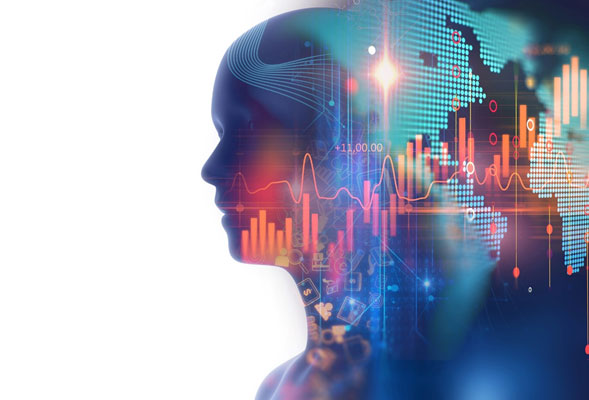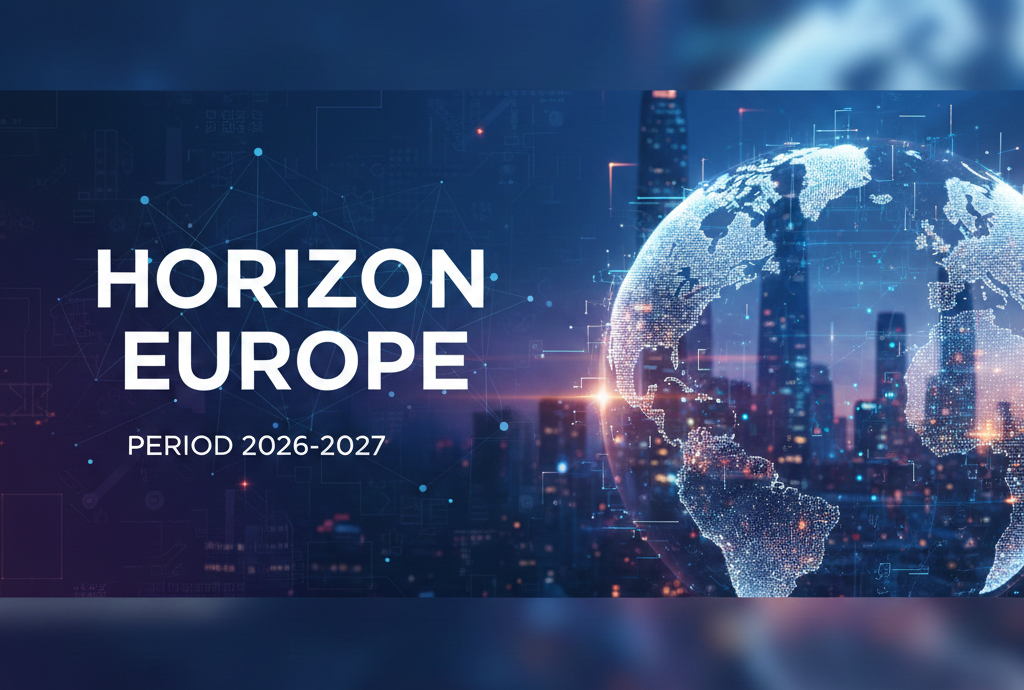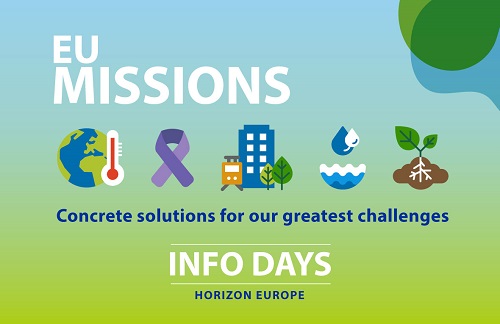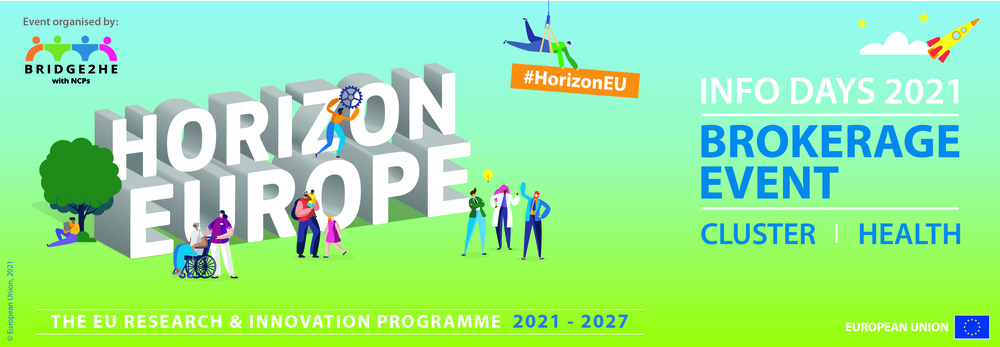[av_image src=’https://matical.com/wp-content/uploads/2020/05/Europe’s-Digital-Future-Matical-News.jpg’ attachment=’5168′ attachment_size=’full’ align=’center’ styling=” hover=” link=” target=” caption=” font_size=” appearance=” overlay_opacity=’0.4′ overlay_color=’#000000′ overlay_text_color=’#ffffff’ copyright=” animation=’no-animation’ av_uid=’av-k9v5j06k’ custom_class=” admin_preview_bg=”][/av_image]
[av_textblock size=” font_color=” color=” av-medium-font-size=” av-small-font-size=” av-mini-font-size=” av_uid=’av-k9v5jj6q’ custom_class=” admin_preview_bg=”]
As part of the next long-term EU budget and the Horizon Europe programme, (2021-2027), the EC has proposed the Digital Europe initiative: a €9.2 billion programme focused on building the strategic digital capacities of the EU and on facilitating the wide deployment of digital technologies, to be used by Europe’s citizens and businesses.
The Digital Europe programme is addressed to strengthening Europe’s position as a global digital reference, focused on people and their wellbeing. According to the EC, the digital transition should work for all, putting people first and opening new opportunities for business. It will be based on three main complementary pillars to ensure that Europe seizes the opportunity and gives its citizens, businesses and governments control over digital transformation:
- Technology that works for the people
A true digital transformation must start from European citizens and businesses trusting that their applications and products are secure. The more interconnected we are, the more we are vulnerable to malicious cyber activity. Feeling safe and secure is not just a question of cybersecurity. Citizens need to be able to trust the technology itself, as well as the way in which it is used. This is particularly important when it comes to the issue of artificial intelligence.
[/av_textblock]
[av_image src=’https://matical.com/wp-content/uploads/2020/05/AI-Matical.jpg’ attachment=’5170′ attachment_size=’full’ align=’center’ styling=” hover=” link=” target=” caption=” font_size=” appearance=” overlay_opacity=’0.4′ overlay_color=’#000000′ overlay_text_color=’#ffffff’ copyright=” animation=’no-animation’ av_uid=’av-k9v5lcmb’ custom_class=” admin_preview_bg=”][/av_image]
[av_textblock size=” font_color=” color=” av-medium-font-size=” av-small-font-size=” av-mini-font-size=” av_uid=’av-k9v5o0nz’ custom_class=” admin_preview_bg=”]
Key actions
- White Paper on Artificial Intelligence setting out options for a legislative framework for trustworthy AI, with a follow-up on safety, liability, fundamental rights and data (Q4 2020).
- Building and deploying cutting-edge joint digital capacities in the areas of AI, cyber, superand quantum computing, quantum communication and blockchain. European Strategies on Quantum and blockchain (Q2 2020) as well as a revised EuroHPC Regulation11 on supercomputing.
- Accelerating investments in Europe’s Gigabit connectivity, through a revision of the Broadband Cost Reduction Directive12, an updated Action Plan on 5G and 6G, a new Radio Spectrum Policy Programme (2021). 5G corridors for connected and automated mobility, including railway corridors, will be rolled out (2021-2030) (2021-2023).
- A European cybersecurity strategy, including the establishment of a joint Cybersecurity Unit, a Review of the Security of Network and Information Systems (NIS) Directive13 and giving a push to the single market for cybersecurity.
- A Digital Education Action Plan to boost digital literacy and competences at all levels of education (Q2 2020).
- A reinforced Skills Agenda to strengthen digital skills throughout society and a reinforced Youth Guarantee to put a strong focus on digital skills in early career transitions (Q2 2020).
- Initiative to improve labor conditions of platform workers (2021).
- A reinforced EU governments interoperability strategy to ensure coordination and common standards for secure and borderless public sector data flows and services. (2021)
- A fair and competitive digital economy
For the development of many products and services, data needs to be widely and easily available, easily accessible, and simple to use and process. Data has become a key factor of production, and the value it creates must be shared back with the entire society participating in providing the data. In the digital age, ensuring a level playing field for businesses, big and small, is more important than ever. This suggests that rules applying offline – from competition and single market rules, consumer protection, to intellectual property, taxation and workers’ rights – should also apply online. Consumers need to be able to trust digital products and service just as much as they would any other.
[/av_textblock]
[av_image src=’https://matical.com/wp-content/uploads/2020/05/Digital-Economy-Matical.jpg’ attachment=’5172′ attachment_size=’full’ align=’center’ styling=” hover=” link=” target=” caption=” font_size=” appearance=” overlay_opacity=’0.4′ overlay_color=’#000000′ overlay_text_color=’#ffffff’ copyright=” animation=’no-animation’ av_uid=’av-k9v5pre6′ custom_class=” admin_preview_bg=”][/av_image]
[av_textblock size=” font_color=” color=” av-medium-font-size=” av-small-font-size=” av-mini-font-size=” av_uid=’av-k9v5r0je’ custom_class=” admin_preview_bg=”]
Key actions
- A European Data Strategy to make Europe a global leader in the data-agile economy (February 2020), announcing a legislative framework for data governance (Q4 2020) and a possible Data Act (2021).
- Ongoing evaluation and review of the fitness of EU competition rules for the digital age (2020-2023) and launch of a sector inquiry (2020).
- The Commission will further explore, in the context of the Digital Services Act package, ex ante rules to ensure that markets characterized by large platforms with significant network effects acting as gatekeepers, remain fair and contestable for innovators, businesses, and new market entrants. (Q4 2020).
- Propose an Industrial Strategy Package putting forward a range of actions to facilitate the transformation towards clean, circular, digital and globally competitive EU industries, including SMEs and the reinforcement of single market rules.
- Create a framework to enable convenient, competitive and secure Digital Finance, including legislative proposals on crypto assets, and on digital operational and cyber resilience in the financial sector and a strategy towards an integrated EU payments market that supports pan-European digital payment services and solutions (Q3 2020);
- Communication on Business Taxation for the 21st century, considering the progress made in the context of the Organisation for Economic Cooperation and Development (OECD) to address the tax challenges arising from the digitisation of the economy.
- Delivering a new Consumer Agenda, which will empower consumers to make informed choices and play an active role in the digital transformation (Q4 2020)
- Open, democratic and sustainable society
People are entitled to technology that they can trust. What is illegal offline must also be illegal online. European values and ethical rules and social and environmental norms must apply also in the digital space. In this context, it is essential that the rules applicable to digital services across the EU are strengthened and modernised, clarifying the roles and responsibilities of online platforms. The sale of illicit, dangerous or counterfeit goods, and dissemination of illegal content must be tackled as effectively online as it is offline.
Key actions
- New and revised rules to deepen the Internal Market for Digital Services, by increasing and harmonising the responsibilities of online platforms and information service providers and reinforce the oversight over platforms’ content policies in the EU. (Q4 2020, as part of the Digital Services Act package).
- Revision of eIDAS Regulation to improve its effectiveness, extend its benefits to the private sector and promote trusted digital identities for all Europeans (Q4 2020)
- Media and audiovisual Action Plan to support digital transformation and competitiveness of the audiovisual and media sector, to stimulate access to quality content and media pluralism (Q4 2020)
- European Democracy Action Plan to improve the resilience of our democratic systems, support media pluralism and address the threats of external intervention in European elections (Q4 2020) • Destination Earth, initiative to develop a high precision digital model of Earth (a “Digital Twin of the Earth”) that would improve Europe’s environmental prediction and crisis management capabilities (Timing: from 2021).
- A circular electronics initiative, mobilising existing and new instruments in line with the policy framework for sustainable products of the forthcoming circular economy action plan, to ensure that devices are designed for durability, maintenance, dismantling, reuse and recycling and including a right to repair or upgrade to extend the lifecycle of electronic devices and to avoid premature obsolescence (2021).
- Initiatives to achieve climate-neutral, highly energy efficient and sustainable data centres by no later than 2030 and transparency measures for telecoms operators on their environmental footprint.
- The promotion of electronic health records based on a common European exchange format to give European citizens secure access to and exchange of health data across the EU. A European health data space to improve safe and secure accessibility of health data allowing for targeted and faster research, diagnosis and treatment (from 2022).
[/av_textblock]
[av_image src=’https://matical.com/wp-content/uploads/2020/05/Graph-Matical.jpg’ attachment=’5174′ attachment_size=’full’ align=’center’ styling=” hover=” link=” target=” caption=” font_size=” appearance=” overlay_opacity=’0.4′ overlay_color=’#000000′ overlay_text_color=’#ffffff’ copyright=” animation=’no-animation’ av_uid=’av-k9v5spy4′ custom_class=” admin_preview_bg=”][/av_image]
[av_textblock size=” font_color=” color=” av-medium-font-size=” av-small-font-size=” av-mini-font-size=” av_uid=’av-k9v5u0uu’ custom_class=” admin_preview_bg=”]
The EU’s digital strategy will benefit European citizens, businesses and the environment:
- European Citizens by making sure technology improves their daily lives. People must have the opportunity to develop personally, to choose freely and safely, to engage in society, regardless of their age, gender or professional background.
- Businesses need a framework that empower them to start up, scale up, pool and use data, to innovate and compete or cooperate on fair terms.
- Environment by reaching climate neutrality with the help of digital technologies.
[/av_textblock]
[av_image src=’https://matical.com/wp-content/uploads/2020/05/Digital-Identity-Matical.jpg’ attachment=’5176′ attachment_size=’full’ align=’center’ styling=” hover=” link=” target=” caption=” font_size=” appearance=” overlay_opacity=’0.4′ overlay_color=’#000000′ overlay_text_color=’#ffffff’ copyright=” animation=’no-animation’ av_uid=’av-k9v5vvbp’ custom_class=” admin_preview_bg=”][/av_image]
[av_textblock size=” font_color=” color=” av-medium-font-size=” av-small-font-size=” av-mini-font-size=” av_uid=’av-k9v5wlnz’ custom_class=” admin_preview_bg=”]
The digital transformation can only work if it works for all and not for only a few. Europe can own this digital transformation and set the global standards when it comes to technological development. More importantly still, it can do so while ensuring the inclusion and respect of every single human being. It will be a digital society project based on European values and European rules – that can truly inspire the rest of the world.
In the view of the EU, digital technologies are profoundly changing our daily life, our way of working and doing business, and the way people travel, communicate and relate with each other. Digital communication, social media interaction, e-commerce, and digital enterprises are steadily transforming our world. They are generating an ever-increasing amount of data, which, if pooled and used, can lead to a completely new means and levels of value creation. It is a transformation as fundamental as that caused by the industrial revolution.
[/av_textblock]










